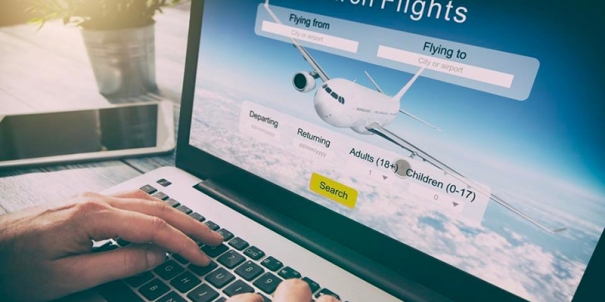5 Best Travel Booking Websites to Compare and Save Money
Author:Arooba
Booking travel can be tricky; extra fees, bad hotel picks, and overpriced flights catch many travellers off guard. The secret is comparing sites instead of choosing the first one you see. With the right platforms, you save money and avoid hassles. Below are the best travel booking websites worth checking out.

Expedia Offers Everything Under One Roof
Expedia handles flights, hotels, rental cars, and vacation packages all together. The site has been around since 1996, so they know what travellers want. Most people prefer booking everything at once rather than jumping between different websites.
The rewards program gives points for each booking. Those points turn into real money for future trips. Customer service picks up the phone 24 hours a day. That helps a lot when flights get cancelled or hotels overbook rooms.
Prices on Expedia sometimes cost more than booking directly with airlines. The cheapest booking sites often beat their rates by $20 to $50 per booking. Package deals work better than single purchases, though. Booking a flight and a hotel together usually saves money.
The mobile app works offline once it is downloaded. This helps travellers stuck in foreign countries with bad wifi. The interface stays simple even with all the options available.
Expedia charges resort fees that don't show up until checkout. These surprise costs annoy many customers. Reading the fine print becomes essential with any booking here.
Key Features
- Complete travel packages in one booking
- 24/7 phone support available
- Points-based rewards program
- Mobile app with offline access
Booking.com Dominates Hotel Searches
Hotel booking websites don't get much bigger than Booking.com. The platform lists over 28 million properties worldwide. That includes tiny hostels, fancy resorts, apartments, and even castles.
Free cancellation works on most hotel bookings. Travellers can change plans without losing money. The review system shows real photos from actual guests. Fake reviews get removed quickly.
The Genius program gives discounts to people who book frequently. Level 1 members get 10% off select properties. Level 2 members get complimentary breakfast and room upgrades when available.
Customer service quality depends on the country from which the agents work. Some locations provide excellent help, others not so much. The website loads slowly when searching in popular destinations during peak season.
Hidden booking fees sometimes appear at the last step. These extra charges make final prices higher than advertised. Always check the total cost before entering credit card information.
Properties listed aren't always what they seem. Some "hotels" turn out to be private apartments with no front desk. Reading guest reviews carefully prevents nasty surprises.
Key Features
- Over 28 million properties worldwide
- Free cancellation on most bookings
- Genius loyalty program with discounts
- Real guest photos and reviews
Kayak Compares Prices Like A Search Engine
Kayak doesn't actually sell flights or hotels. Instead, it searches hundreds of travel booking sites at once. This approach finds deals that individual websites miss. The price comparison happens in seconds.
The price prediction feature analyses historical data. It tells travellers whether current fares will go up or down. This advice helps people decide when to book trips. Price alerts send emails when fares drop for saved searches.
Flight search filters work better than most competitors. Travellers can exclude airlines with a bad reputation. They can also avoid airports that require long layovers. The flexible date search shows prices across entire months.
Since Kayak redirects to other websites for booking, customer service gets complicated. Problems require calling the actual booking site, not Kayak. Some third-party sites charge extra fees that don't show up in Kayak's initial results.
The flight booking sites' integration works smoothly most of the time. Occasionally, advertised prices disappear by the time travellers click through to book. This happens more often during sales or when inventory runs low.
Key Features
- Searches hundreds of booking sites simultaneously
- Price prediction based on historical data
- Flexible date and destination searches
- Free price alerts via email
Priceline Specialises in Mystery Deals
Priceline invented the "Name Your Price" system back in the 1990s. Express Deals hide hotel names until after payment goes through. This mystery approach delivers serious savings for flexible travellers.
Express Deals typically save 20% to 60% on hotel rates. The system works best in major cities with lots of hotel options. Travellers learn the general area and star rating but not the exact property.
Travel deals online get competitive here. Last-minute bookings often cost less than reservations. The VIP program adds extra perks for frequent users.
The bidding system requires strategy. Bid too low and risk rejection. Bid too high and overpay for rooms. Some travellers research comparable hotel rates first, then bid accordingly.
Refund policies stay strict on mystery bookings. Cancellations usually aren't allowed once payment processes are initiated. This inflexibility doesn't work for travellers whose plans might change.
Regular hotel bookings cost about the same as other significant sites. The real value comes from Express Deals and bidding options.
Key Features
- Express Deals with 20-60% savings
- Name Your Price bidding system
- VIP rewards program
- Strong last-minute deal selection

Skyscanner Focuses Only On Flights
Skyscanner searches flights across hundreds of airlines simultaneously. The platform started in Scotland and expanded globally. The competition among flight booking sites pushed them to add valuable features that other sites lack.
The "Whole Month" view shows the cheapest dates to fly. "Whole Year" search reveals the best months for specific destinations. These tools help flexible travellers save hundreds of dollars.
Price tracking sends alerts when flight costs change. The system monitors fares for weeks or months. Notifications arrive by email when prices drop significantly.
The mobile app downloads well for offline use. Flight details stay accessible without an internet connection. This helps during international travel with limited data plans.
Skyscanner doesn't sell tickets directly. Instead, it redirects to airline websites or travel agents. This creates extra steps, but sometimes unlocks better prices. Booking fees don't exist since transactions happen elsewhere.
Hotel and car rental options exist, but are limited. Most travellers use Skyscanner only for flights and then book accommodations elsewhere.
- Key Features
- Whole month and year price comparison
- Flight price tracking and alerts
- No booking fees charged
- Searches hundreds of airlines globally
Getting The Most From Travel Booking Platforms
Not all travel booking sites work the same for every trip. Budget travellers often turn to Kayak or Skyscanner to find the lowest prices for flights, hotels, or rentals.
Business travellers may prefer Booking.com for its wide selection and flexible options. Families can save with Expedia's package deals, while adventure seekers sometimes score great bargains through Priceline's mystery bookings. The trick is knowing which platform suits your travel style and needs, rather than relying on just one site for everything. Wise choices here can make trips cheaper and easier.
Sources:
https://www.fool.com/investing/2017/07/11/expedia-history-everything-investors- need-to-know.aspx
Latest News

Europe Made Easy: 10 Best European Tour Operators for Senior Travelers
November 19, 2025

Hidden Benefits Of Traditional Thai Massage You Didn't Know
October 27, 2025

10 Best Places To Go For Fun Family Vacations
October 3, 2025

Sailing Into Paradise: Your Ultimate Cruise Vacation Guide
September 20, 2025

12 Best Solo Travel Destinations For 2026 (Plus Safety Tips)
September 18, 2025

Solo Travelling As a Woman: Safety Tips And Destination Ideas
September 17, 2025